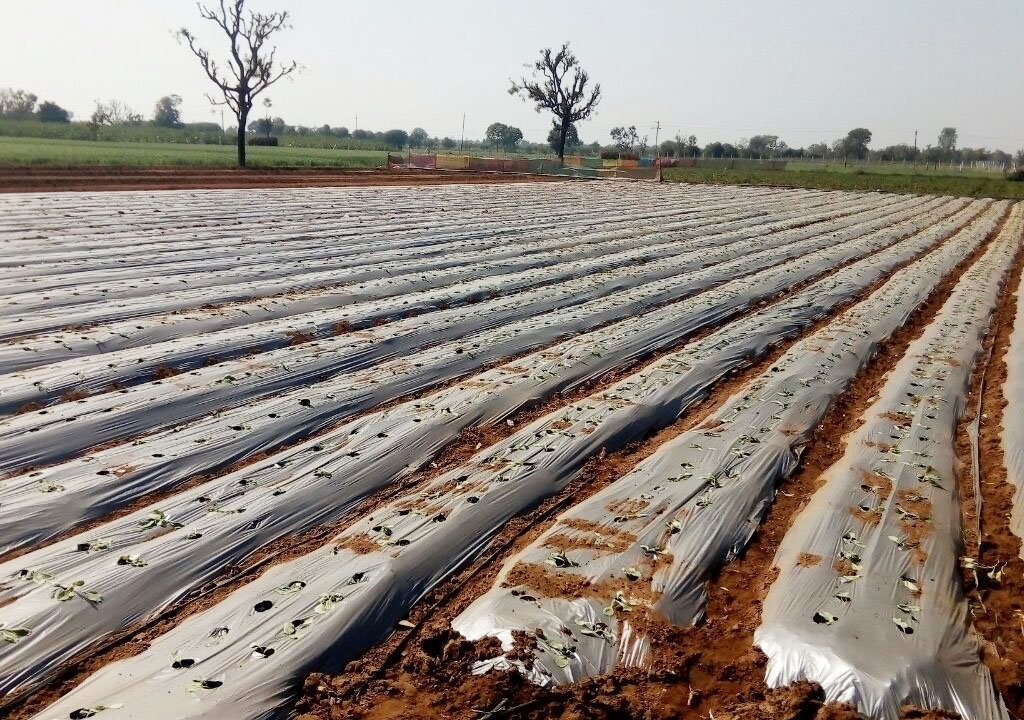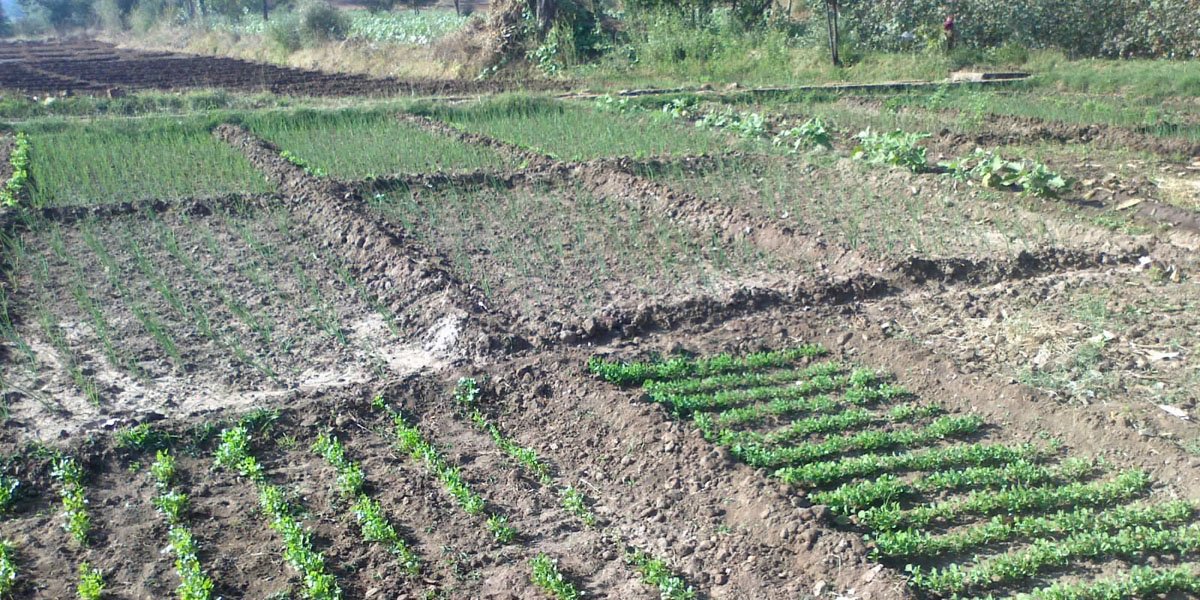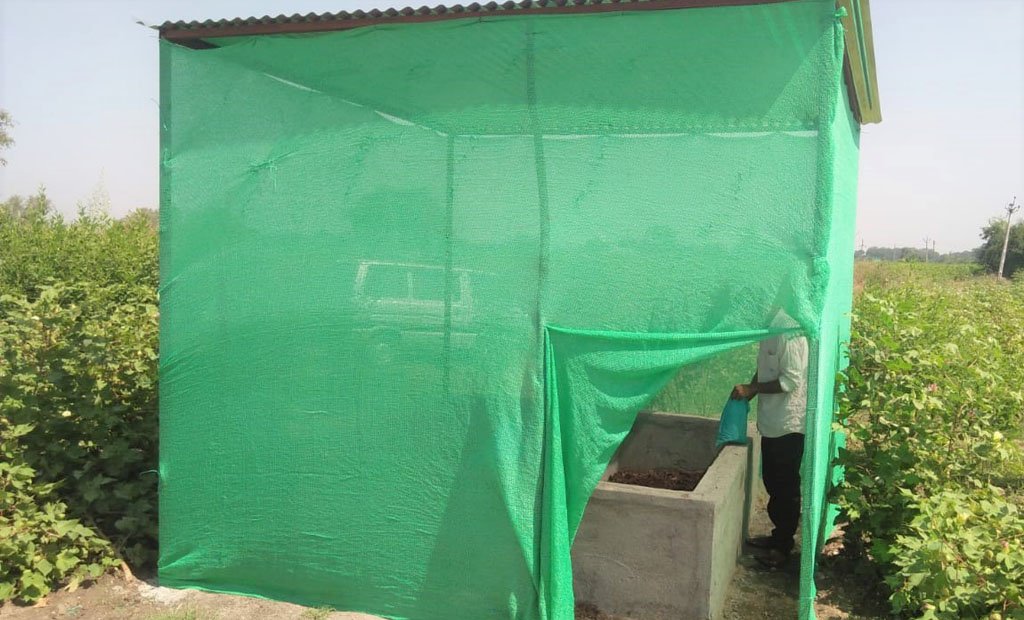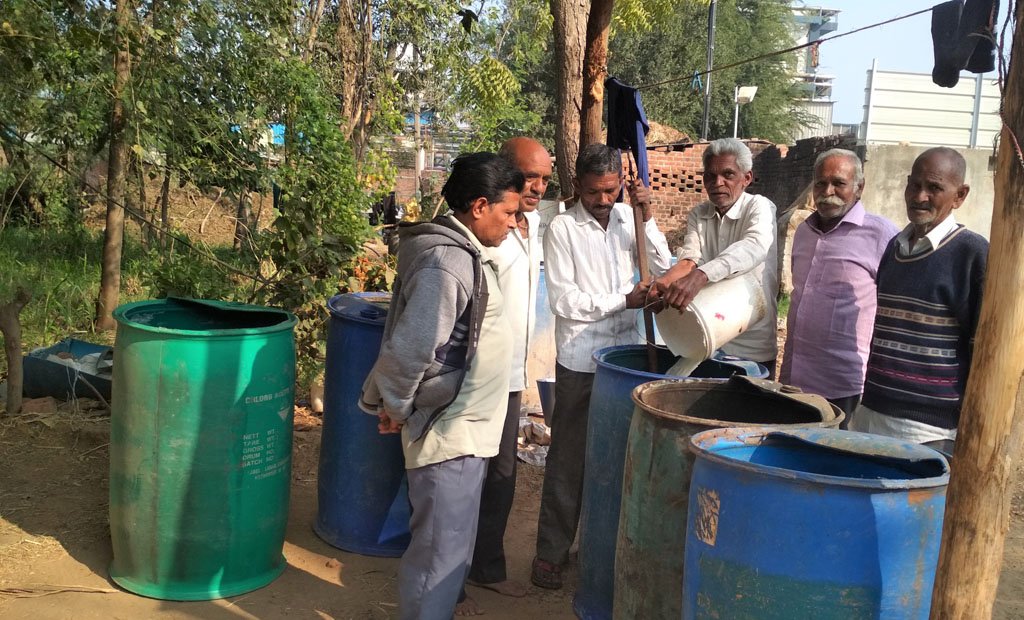Agriculture
Agriculture is of prime concern in India and its plays a prominent role in the Indian economy. More then 70 percent of our population is directly or indirectly dependent on agricultural activities. Various agricultural activities are influenced by the vagaries of seasonal variations.Due to seasonal variation, the various agriculture activities are abruptly influenced. Increase in agriculture expenses, degradation of soil health, reducing and depleting productivity is leading to the reduction in dependence on the agriculture as an occupation. Hence, farmers are facing difficulty to make the farming successfully in agriculture operations especially during the peak load period i.e. at the time of sowing, harvesting and threshing. Under this program we try to solve the problems faced by farming households living in remote, economically backward, semi-arid regions. We try to increase agricultural production by bringing additional area under cultivation, extension of irrigation facilities, the use of improved high yielding variety of seeds, better techniques evolved through agricultural research, water management, plant protection and market linkages.
Soil and Water testing
Comprehensive soil and water testing were conducted in all 21 villages. Samples were collected from two farmers in each village and sent to Dantiwada Agriculture University and GSFC (Gujarat State Fertilizers and Chemicals) for analysis. Based on the results, farmers were advised to address nutrient deficiencies by applying organic manure to their fields. This approach proved effective in enhancing nutrient and organic matter content in the soil, leading to improved yields. The farmers eagerly embraced these recommendations, resulting in more productive outcomes.
Training and capacity development of farmers:
Farmers underwent extensive training facilitated by experts and field staff. Through continuous engagement, farmer groups were trained using various tools on different aspects of sustainable farming. These training programs were held in villages, and field demonstrations were conducted to facilitate learning. The training sessions focused on various aspects of sustainability, including proper practices for PoP (Package of Practice) of different crops, soil management, pest management, nutrition management, and water management. More than 1500 farmers from 20 villages have adopted sustainable agricultural practices as a result of these training programs organized by various organizations.
Training cum Exposure Visit of Farmers
Over the span of five years, numerous exposure visits were conducted based on the specific needs of farmers. These visits were organized to various institutions and agricultural fairs, including Dantiwad Agriculture University, Anand Agriculture University, Sahyadri FPC, YuvaMitra, Viksat, KVK, and Government-organized events. These exposure visits proved to be highly informative, offering the farmers a fresh perspective on various aspects related to agriculture. The major objectives of these training cum exposure visits were threefold: 1) To understand sustainable farming practices for different crops, considering economic, social, and environmental parameters. 2) To learn about efficient use of resources, technology, and innovative practices. 3) To explore the availability of credit and government schemes and programs specifically designed for farmers in the agriculture sector.
Demonstration & On field support
On-farm demonstrations are recognized as highly effective extension training tools to address farmers' perceived risks in adopting new agricultural practices. Demonstrations help farmers visualize the results of new practices in comparison to traditional methods. This empowers them to make informed decisions and adopt practices that they find effective and suitable for their local conditions. To support this approach, 20 different demonstration plots were set up in Masal, Virpur, Jadar, Deshottar, and Maniyor villages. These plots showcased improved seed and sowing practices, soil and water management techniques, pest and disease management strategies, and nutrition practices. By observing these demonstrations, farmers can enhance their existing farming systems, reduce costs, and optimize resource utilization effectively. These on-field demonstrations provide tangible evidence of the benefits of adopting new practices, encouraging farmers to implement them in their own fields for improved outcomes.
Trellis Farming
Material for the structure was provided for 10 demo plots, and the standardized structure for trellis farming was established. Seeds were then distributed for sowing. During the process, farmers were informed about new innovations and techniques used in agriculture. One such successful technique was the use of NoMate Lifetime by AgriL and Biotech Limited, which effectively controlled insects and pests. The adoption of these new techniques brought positive outcomes, and the farmers expressed satisfaction in learning and implementing these approaches. Trellis farming proved to be a promising method, and the demonstration plots served as valuable learning experiences for the farmers.
Kitchen Gardening
The primary objective of a kitchen garden is to achieve maximum output and ensure a continuous supply of vegetables throughout the year, enabling women in the village to become self-reliant. This is achieved by imparting organic vegetable knowledge and skills, allowing them to create kitchen gardens in their vicinity, locality, or backyards. By growing organic vegetables and fruits, families can maintain good health for all members. To promote this initiative, 20 kitchen gardens were established with various nutrient-rich vegetables such as cauliflower, onion, potatoes, tomatoes, bottle gourd, ladyfinger, chilies, and beans. These gardens serve as a sustainable source of fresh and healthy produce for the families, contributing to their overall well-being.
Nutrition & Pest Management
During the green revolution, the indiscriminate and unilateral use of pesticides and fertilizers was the primary means of plant protection to sustain agricultural production potential under intensive cropping systems. Unfortunately, this approach has resulted in several harmful effects, including health hazards for humans and animals, ecological imbalances, resistance development in pests against pesticides, pest resurgence, environmental pollution, and destruction of natural enemies (bio-control agents) of pests. Moreover, the increased use of pesticides has led to higher residues in soil, water, and food. To address these issues and minimize the use of hazardous chemicals, SMUT has established 50 units of Integrated Nutrient Management (INM) and Integrated Pest Management (IPM). The aim is to prevent and manage insect pests and diseases, while also enhancing crop productivity. By implementing these sustainable practices, SMUT seeks to promote healthier agricultural practices that protect the environment and ensure the well-being of farmers and consumers alike.














